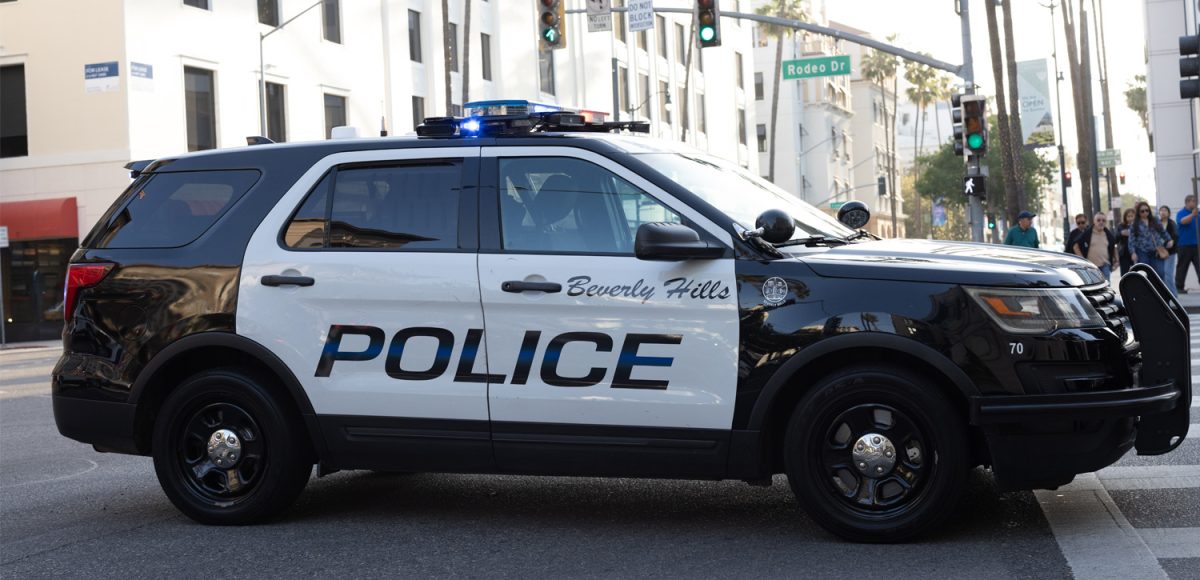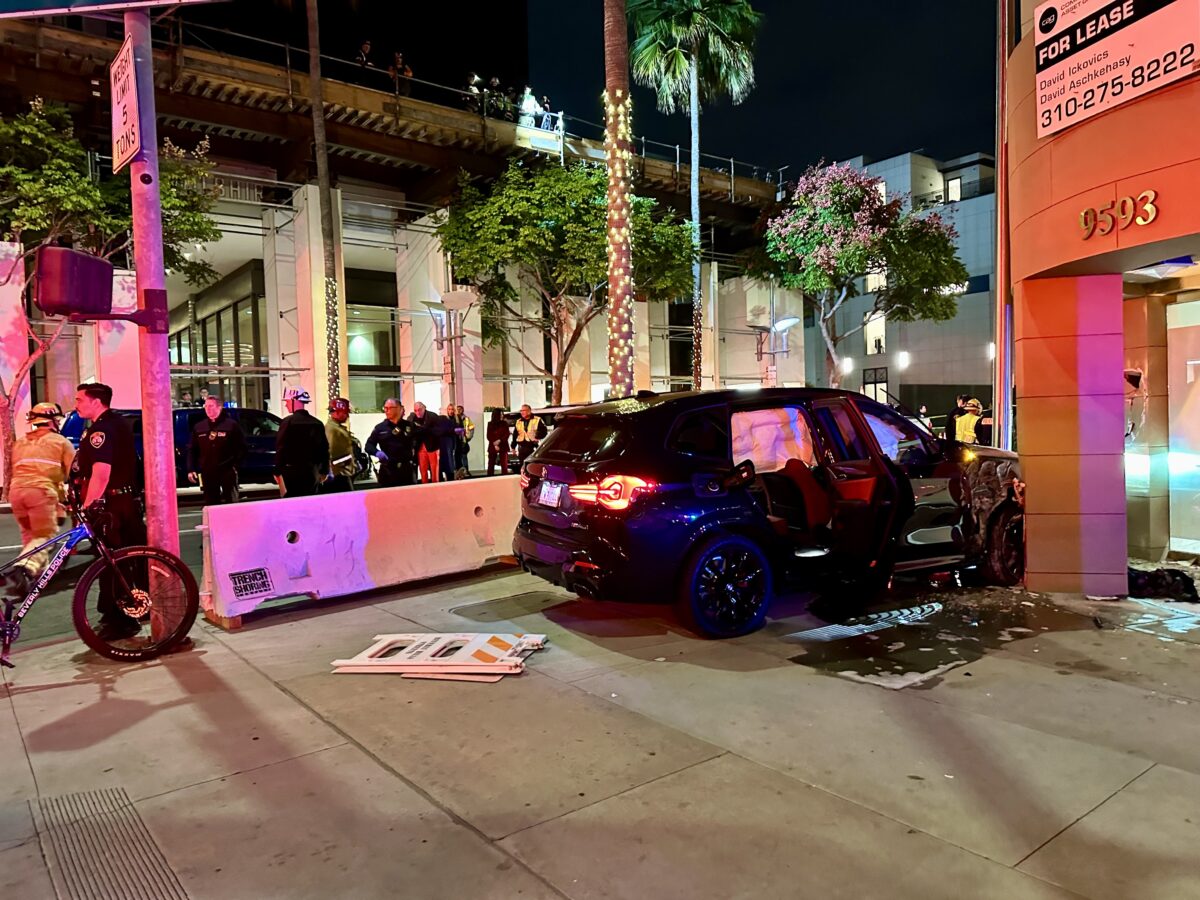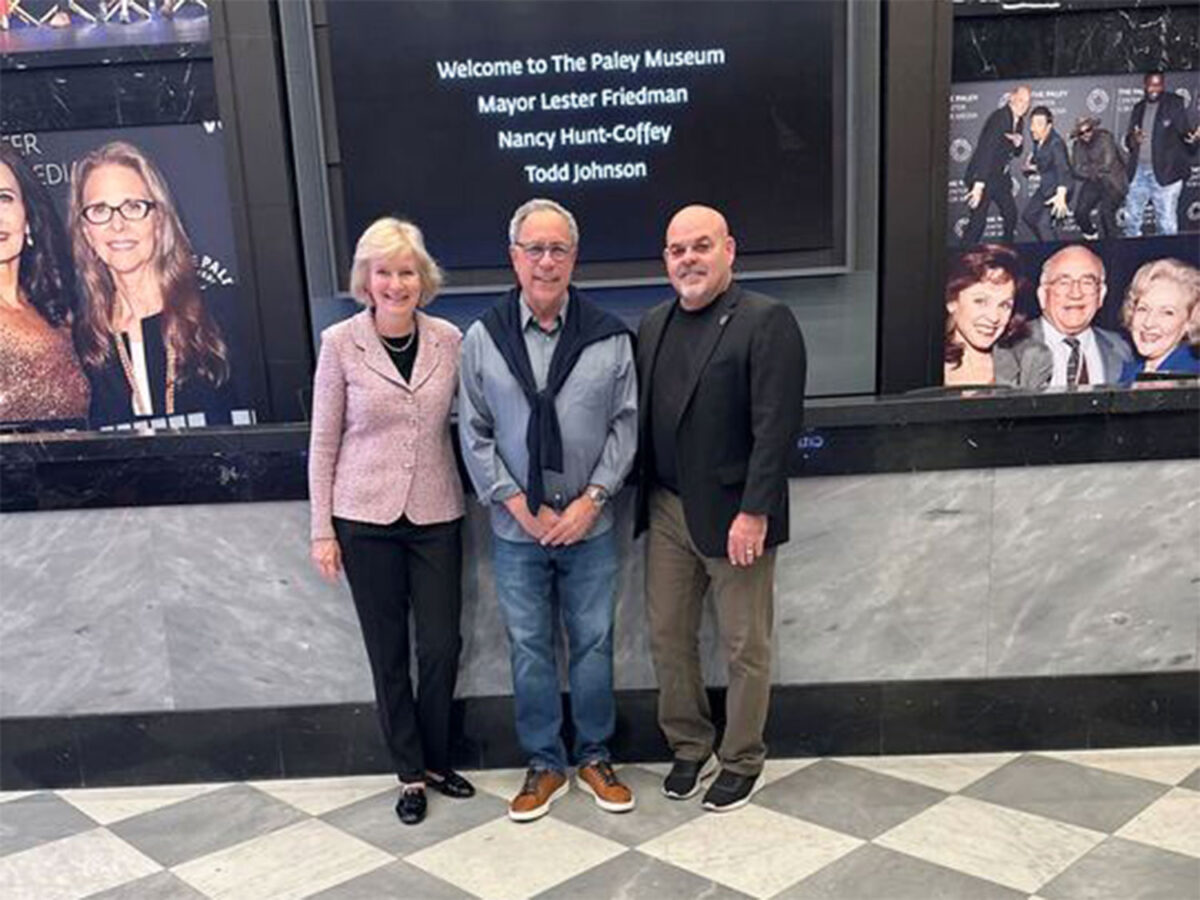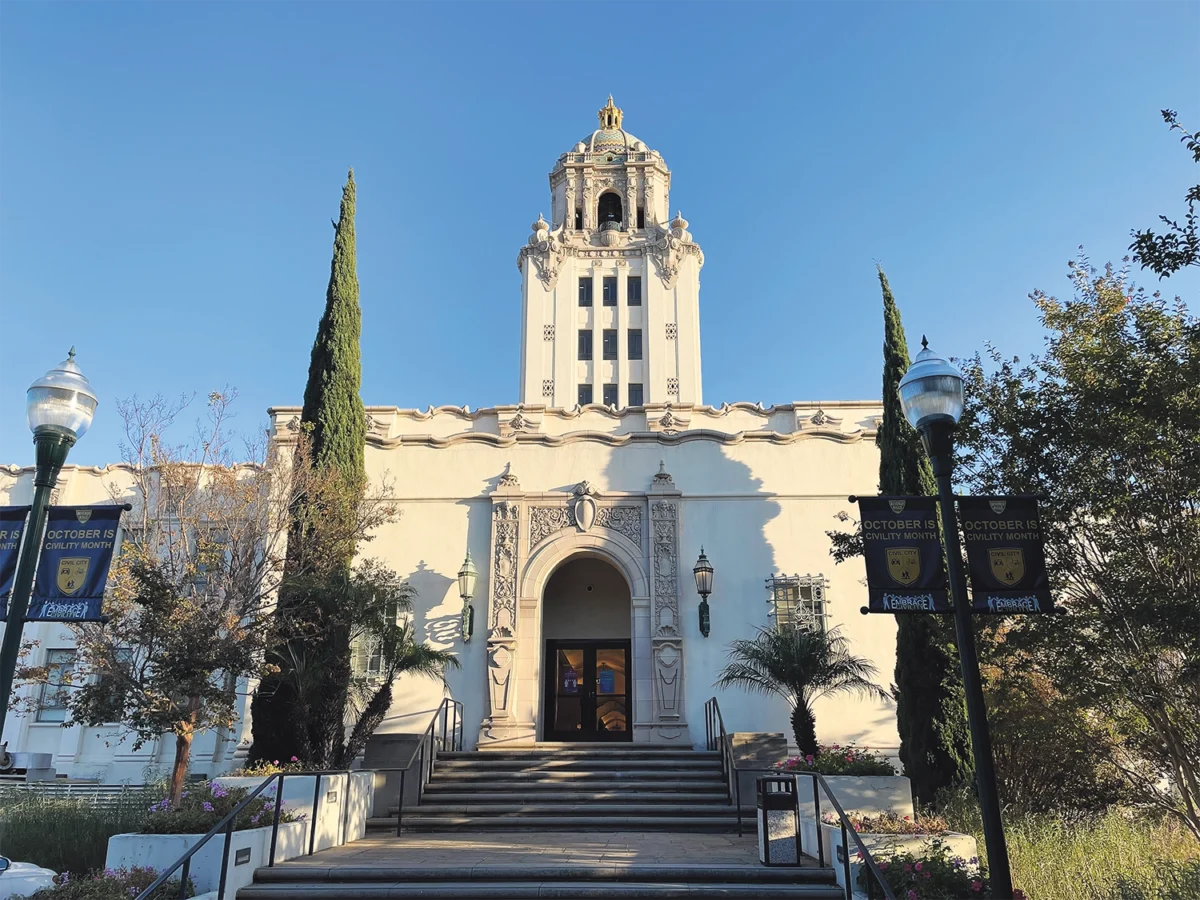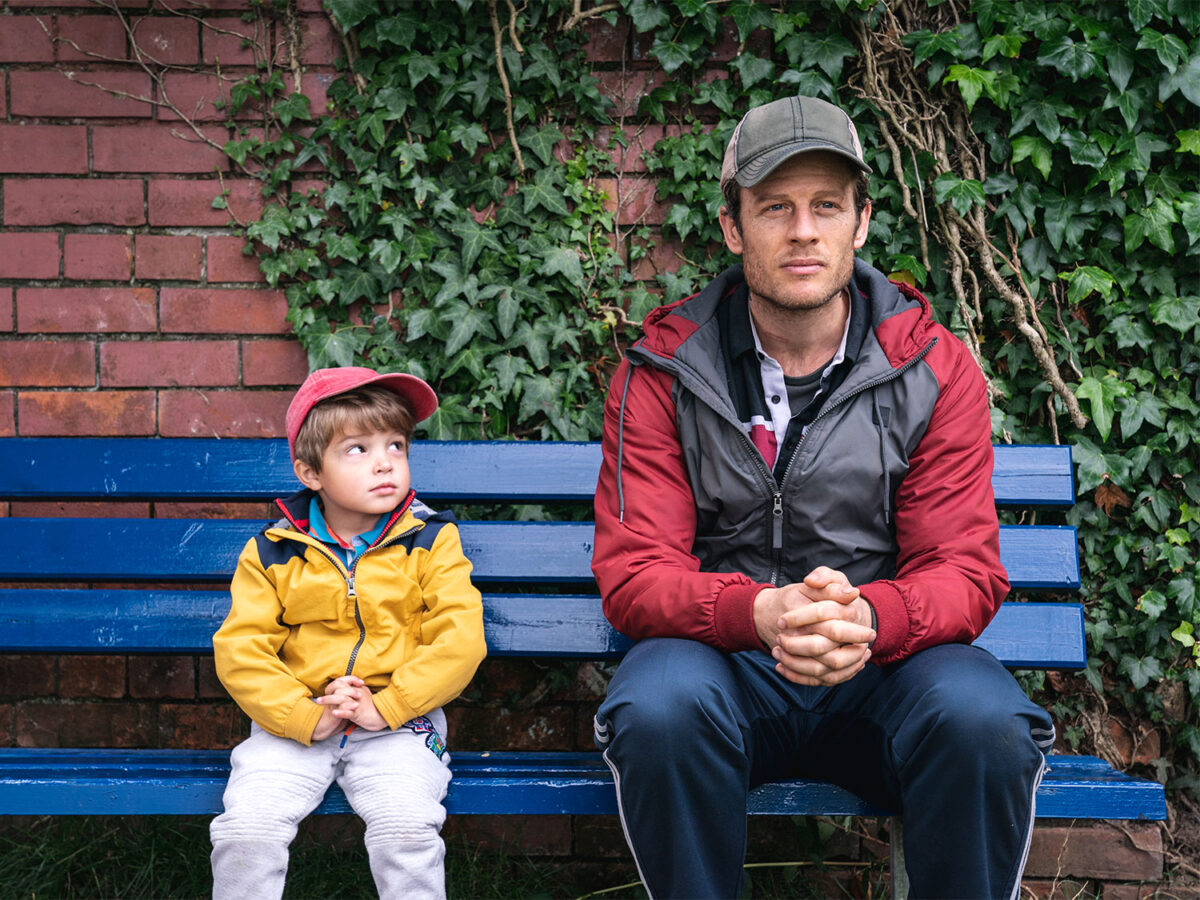Detective Axel Foley, Eddie Murphy’s character from the iconic “Beverly Hills Cop” franchise, is slated to return to the titular city in “Beverly Hills Cop 4.” To receive certain permits, the producers of the film have agreed to give the city the right to read and approve portions of the script in advance of filming.
The movie, produced by Beverly Hills resident Jerry Bruckheimer, will follow the antics of fish-out-of-water Detroit cop Axel Foley, who first came to Beverly Hills in 1984 to solve the murder of a friend. The plot has not yet been announced, but certain details of the film came out during the June 21 meeting.
The movie comes at a sensitive time for the city and its police department, following a spate of high-profile crimes and allegations of racially prejudiced policing.
At the meeting, Councilmember Julian Gold explained to a representative from the film that his hope with the movie was to “raise awareness that we’re not the same city we were 40 years ago.”
“We’ve been through a pretty difficult couple of years. Everybody’s very sensitive to it, not just the police, but our businesses and our residents,” Gold said. “It just won’t feel good if this becomes something that brings up all that stuff, and so I think we just really want to protect against that.”
Dan Cooley, Location Manager for Netflix Productions for “Beverly Hills Cop 4,” estimated that the production is four weeks away from having a “production draft” of the script. Still, his purpose at the meeting was to establish a “unique private-public partnership” in advance of completion to allow time “to not only address your concerns, but then try to mitigate what those concerns are in the creative process itself.”
Netflix has agreed to allow two representatives with the city and the BHPD to read and approve sections of the script relating to Beverly Hills and the fictional BHPD depicted in the film–provided that both representatives sign non-disclosure agreements first. Based on the recommendations from the representatives, the Council could approve or reject the movie’s permit applications.
Film permits are normally reviewed and issued by the city’s Special Events and Filming Division in consultation with BHPD, the Beverly Hills Fire Department (BHFD), and other relevant departments. At least two permits for “Beverly Hills Cop 4” require Council approval due to requested street closures and sequences of simulated gunfire and staged car crashes.
The film’s production team has requested permission for a temporary street closure at one of three possible Wilshire intersections (McCarty, Crescent or Doheny Drive). The production has also requested temporary intermittent street closure and traffic control for “wrong-away traffic filming” on Rodeo Drive between Wilshire and north of Dayton in order to film a comedic chase scene stretching from Two Rodeo to the Gucci storefront.
Both shoots would last around 12 hours and take place on an undecided date in September or October.
But the Council’s concerns extended beyond the logistical hurdles of filming a major motion picture in the heart of the city.
Bosse, who watched all three prior movies in anticipation of the hearing, expressed misgivings about Foley’s first scenes in Beverly Hills and how they reflected on the city. In his first encounter with BHPD, Foley gets thrown through a window by the villain’s thugs. Beverly Hills’ police roll up and arrest Foley instead of the thugs.
“Beverly Hills is a very different city now,” Bosse said. “We are very, very, very welcoming and it does matter how Beverly Hills is portrayed, as well as crime, as well as our [police department].”
The department is redeemed by the end of the movie, but such moments would likely play differently today after a series of headlines for BHPD over the last few years.
In 2020, former Police Chief Sandra Spagnoli resigned amid accusations of making racist remarks. The department also faces a proposed class action lawsuit brought by civil rights attorney Ben Crump for allegations of racially biased policing by a task force convened during the summer of 2020.
Brands have suffered in the past due to insufficient oversight of media partnerships. Bosse gave the example the “Sex and the City” reboot and the high-end fitness equipment company Peloton. (A spoiler alert for those who have not yet watched “And Just Like That” and intend to.)
In the first episode of the limited HBO series, the longtime love interest of Sarah Jessica Parker’s Carrie Bradshaw, Mr. Big, dies of a heart attack after a vigorous workout on a Peloton bike. The death sent both fans and Peloton stock prices reeling. A representative from Peloton said that the company was in the dark on how exactly the bike would appear in the pilot episode “due to confidentiality reasons.”
The city will be taking no such chances.
Potentially complicating matters, though, Murphy famously improvised many of his lines in the other “Beverly Hills Cop” movies. This raised additional concerns for Gold.
“I think the same sensitivity needs to be had with that,” he said. “Doesn’t do us any good if the script is planned and then he does something that isn’t.”
The script has already undergone changes to reflect the priorities of the city, Cooley said. A scene from a prior version of the script “involved some breaking glass as a way to pay homage to what happened in the first film”– presumably a reference to Foley getting thrown through the window of a Beverly Hills business.
But at least one city official expressed discomfort with the scene, citing “smash and grab” robberies in the city. In response, “we got creative to say, okay, no broken glass,” Cooley said.
“We want to protect you and we want your support,” Cooley told the Council.
The Council acknowledged that this cooperation had its limits.
“We’re not trying to write the script in any way whatsoever and we recognize you could go ahead and film this movie outside and do it in a film stage and film it elsewhere,” Bosse said.
The movie will be released in a significantly different cultural environment than 1994, when the most recent “Beverly Hills Cop” movie came out. In the aftermath of the murder of George Floyd by a Minneapolis police officer, certain portions of Hollywood have reflected on the role of the entertainment industry in portraying law enforcement, race, and the criminal justice system.
It has yet to be seen how “Beverly Hills Cop 4” handles the moment. In front of the Council, Cooley emphasized that the “Beverly Hills Police Department are the heroes at the end of this film,” but also referenced the broader political context.
“From a large studio film’s perspective, we’re very much conscious of what the climate looks like today,” Cooley said.



